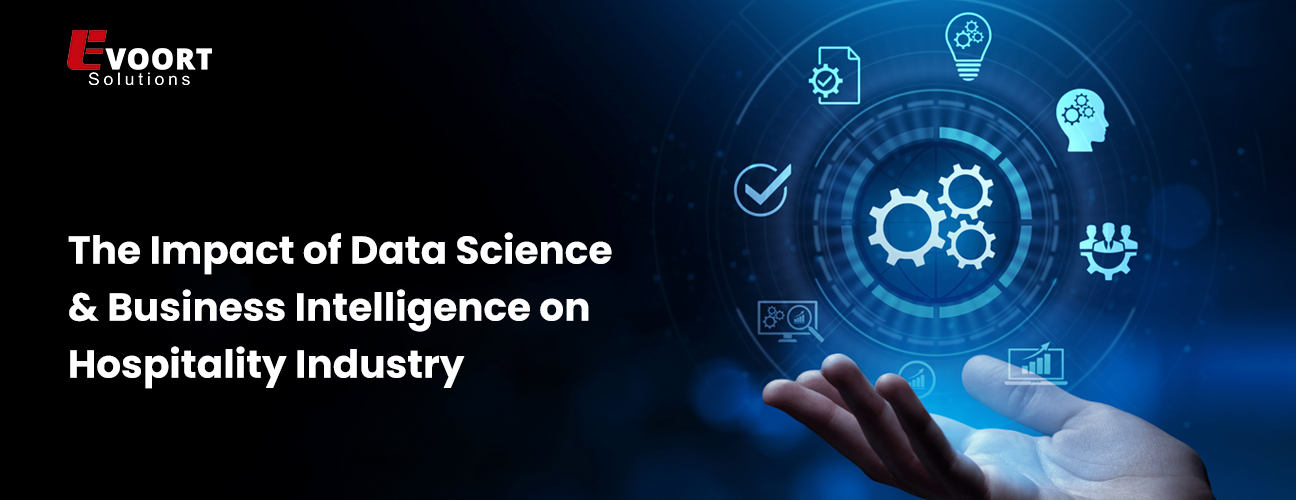
The Impact of Data Science & Business Intelligence on Hospitality Industry
Table of Contents
Introduction:
The hospitality industry, a dynamic and customer-centric sector, is witnessing a profound data & analytics-led transformation. Data Science plays a crucial role in collecting, analyzing, and interpreting vast amounts of data generated from various touchpoints, such as reservations, guest interactions, feedback, and operational processes.
Optimizing Operations:
Analytics tools enable hotels and restaurants to streamline their operational processes by providing real-time insights into key performance indicators (KPIs) like room occupancy, average spending per guest, and staff efficiency.
By leveraging historical data, businesses can forecast demand, optimize staffing levels, and efficiently manage inventory, resulting in improved resource utilization and cost-effectiveness.
Enhancing Guest Experience:
Using Data Science, hotel chains are personalizing guest experiences by analyzing customer preferences, behavior, and feedback.
Understanding guest preferences allows for customized marketing strategies, loyalty programs, and tailored services, creating a more memorable and satisfying experience for customers.
Revenue Management:
Analytics & BI tools aid in dynamic pricing strategies by analyzing market trends, competitor pricing, and historical booking data.
This optimization ensures that hotels and restaurants can adjust pricing in real-time based on demand, maximizing revenue potential.
Hotel chains are employing multidisciplinary approaches, methods, processes, and algorithms to predict events and extract insights from structured and unstructured data. Some of these include:
Predictive Analytics:
Data Science techniques, such as predictive analytics and forecasting help predict likelihood of events or forecast future demands and inventory availabilities so hotel chains can feed the intelligence into their dynamic pricing models for deploying optimized pricing strategies.
Hotel chains anticipate peak booking periods, allowing businesses to proactively adjust staffing levels, inventory, and marketing strategies.
Sentiment Analysis:
With the proliferation of online reviews and social media, data science tools can perform sentiment analysis to gauge customer satisfaction levels or even net promoter scores (NPS) and identify areas for improvement.
Understanding sentiment helps businesses address issues promptly, enhancing overall customer satisfaction and reputation management.
Fraud Detection and Security:
Data Science uses a probabilistic approach for developing robust fraud detection systems to safeguard financial transactions and customer data.
Data Science plays a pivotal role in fortifying defenses against cyber threats by ensuring the security of customer information.
Personalized Marketing Campaigns:
Leveraging machine learning algorithms, Data Science facilitates targeted marketing campaigns by analyzing customer behavior and preferences.
Personalized campaigns result in higher engagement, increased bookings, and improved return on marketing investments.
Examples of Real-world Applications:
Some of the real-world applications of Data Science & BI in the hospitality sector are highlighted below:
Operational Efficiency at Marriott International:
Marriott International utilizes BI to optimize its operations. The hotel chain analyzes data related to guest preferences, booking patterns, and service usage to enhance customer experiences.
By identifying peak check-in times, Marriott adjusts staffing levels, ensuring a seamless and efficient check-in process for guests.
Dynamic Pricing at Airbnb:
Airbnb employs Data Science algorithms to implement dynamic pricing. The platform analyzes factors like demand, local events, and seasonality to adjust rental prices in real-time.
This dynamic pricing strategy allows hosts to maximize their earnings while offering guests competitive rates.
Guest Personalization at Hilton Worldwide:
Hilton Worldwide leverages BI and Data Science to enhance guest personalization. By analyzing data on past stays, preferences, and feedback, Hilton tailors its services to meet individual guest needs.
Personalized experiences contribute to increased guest satisfaction and loyalty.
Challenges and Considerations:
While the integration of BI and Data Science brings numerous benefits to the hospitality industry, it is not without challenges. Privacy concerns, data security, and the need for skilled professionals are critical considerations for businesses adopting these technologies. Striking a balance between data-driven decision-making and ensuring ethical data usage is paramount for sustainable growth.
Emerging Trends and Future of Applied Data Science in Hospitality Industry
The hospitality industry continues to evolve, and staying ahead requires a proactive approach to exploring, testing and implementing emerging technologies. Some such advanced trends include.
Artificial Intelligence (AI)-driven Chatbots:
AI-driven chatbots are becoming integral for providing instant customer service and handling reservations. The existing large language models (LLM) related issues are industry-wide topics of exploration, and it is probably only a matter of time before AI Chatbots become the norm.
These technologies enhance efficiency by automating routine tasks, allowing staff to focus on more complex and personalized guest interactions.
Conclusion:
Evoort Solutions acknowledges the game-changing impact of evolving data science practices across industries, including hospitality industry. We are committed to not just utilizing these developments, but also building cutting edge AI-based solutions to enhance efficiencies, personalize guest experiences, and drive sustainable growth for the industry.
